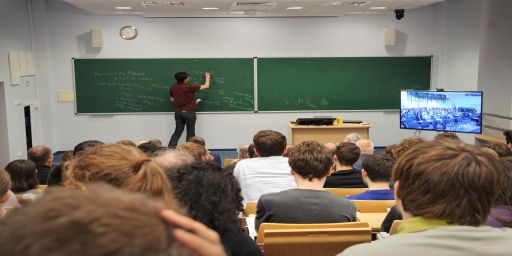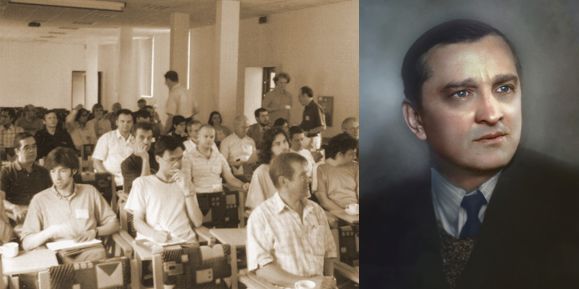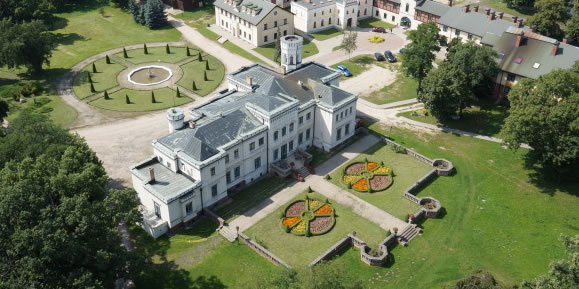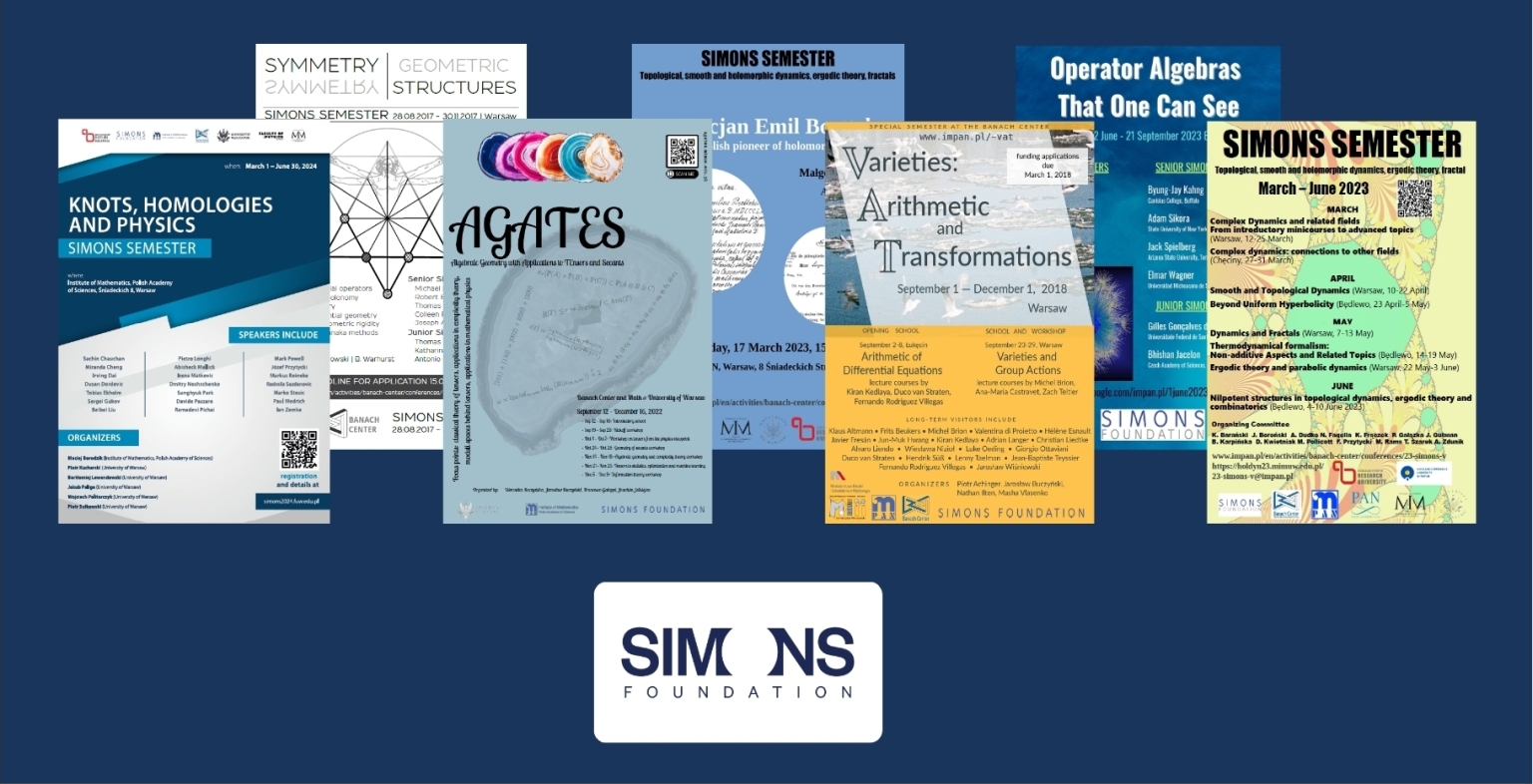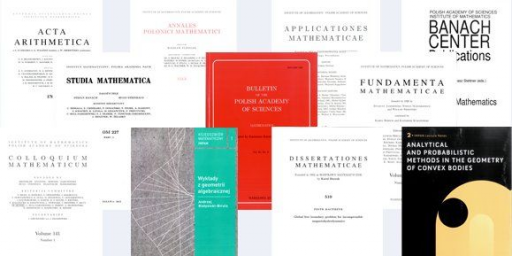About us
The Institute of Mathematics is one of the main centers of mathematical research in Poland. Our activities involve specialists in all fields of Mathematics, with about fifty mathematicians employed at the Institute and many short-time and part-time positions each year. Research concentrates on the following disciplines:
- Algebra and algebraic geometry (complex algebraic geometry (projective and affine), linear systems, vector bundles, moduli spaces, intersection theory and enumerative geometry, characteristic classes, Schubert calculus, singularities, Calabi-Yau varieties, secant varieties, ranks of polynomials and tensors, holomorphic symplectic and contact geometry, arithmetic algebraic geometry, algebraic geometry in positive characteristic)
- Differential equations and optimization (geometric and analytic properties of solutions of nonlinear differential equations, equations of mathematical physics, hydrodynamics and biology, geometry of control systems and differential equations, hamiltonian methods and singularities)
- Differential geometry (generalized manifolds and analytic geometric structures)
- Dynamical systems (low-dimensional dynamics: iteration of maps of interval and holomorphic functions; methods of ergodic theory: thermodynamical formalism and multifractal spectra; topological dynamics, entropy, mixing, relations with geometric measure theory and number theory)
- Foundations and philosophy of mathematics (set theory, model theory, set theory aspects of functional analysis and topology, foundation of arithmetic)
- Functional analysis (operator-theoretical approaches to analysis and its applications with the emphasis on spectral theory, operator semigroups and functional calculi; analytic aspects of harmonic analysis; geometry of Banach spaces: bases, approximation theory, function spaces; Banach and topological algebras)
- Differential geometry (graded manifolds and supergeometry)
- Mathematical physics (gravitational waves, geometric methods and mechanics and field theory)
- Number theory (polynomials over general fields, elementary and algebraic number theory)
- Numerical analysis (inverse and ill-posed problems)
- Statistics (theory of estimation, model selection, statistical models, decision theory, testing statistical hypotheses)
- Probability (stochastic analysis, stochastic control, stochastic processes, applications (mainly finance and insurance))
- Topology (geometric topology and geometric group theory: topology of Euclidean spaces/embeddings, topological aspects of game theory, various forms of nonpositive curvature, large scale geometry, analytic and geometric aspects of cohomology of spaces and groups, random groups, geometric aspects of representation theory)
The Institute participates in several research projects, organizes weekly over forty seminars, and offers full Ph.D. studies in Mathematics.
One of the essential features of the Institute is its nation-wide character with branches outside Warsaw: in Cracow, Gdańsk, Katowice, Poznań, Toruń, and Wrocław.
The Stefan Banach Mathematical Center, part of the Institute, promotes and stimulates international cooperation in mathematics and hosts international workshops and conferences. A part of these activities take place at the new Mathematical Research and Conference Center in Będlewo (near Poznań) which offers a friendly atmosphere and full infrastructure for scientific meetings.
The Institute publishes several internationally recognized journals, serials, and conference proceedings.
The Library, has in its collection over 80.000 volumes paper books and over 85 000 volumes of journals. It provides readers with access to over 5 000 mathematics eBook and to approximately 12 000 electronic scientific journals. It is the largest mathematical library in Poland and it is ranked among a small group of the best mathematical libraries in the world.

